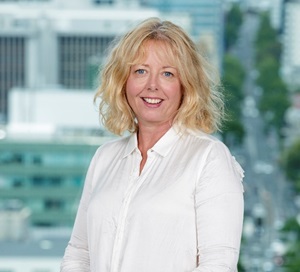Gen Z and millennials in Asia-Pacific want purpose, sustainability in jobs
- Josephine Tan

As Asia-Pacific’s business landscape continues to shift and evolve at a rapid pace, organisations are facing a critical challenge: attracting and retaining top talent from the younger generations. The pandemic, global instability, and rapid technological advancements have left Gen Z and millennials reevaluating their career priorities.
Speaking with HRM Asia, Sonia Breeze, Chief People and Purpose Officer, Asia-Pacific, Deloitte, shed light on how organisations can navigate this new terrain.
“Gen Zs and millennials want purpose-driven work and are not afraid to turn down work that doesn’t align with their values,” Breeze emphasised. This desire for meaningful work goes hand-in-hand with a commitment to sustainability and social impact. “Employers need to incorporate these priorities into their operations and culture and provide opportunities for employees to be involved in sustainability initiatives or innovative projects that can help them feel invested in the organisation’s mission,” she added.
The Deloitte 2024 Gen Z and Millennial Survey, which gathered responses from nearly 23,000 individuals across 44 countries, highlighted the priorities of these generations. The survey also revealed that addressing climate change and embracing emerging technologies like generative AI is crucial for workplace satisfaction. By aligning their strategies with these priorities, organisations can foster an engaged, purpose-driven workforce that is adaptable to the changing needs of the modern world.
Despite a generally positive outlook, the survey revealed a concerning trend – only half of Gen Z and millennials in Asia-Pacific report good or excellent mental health. Financial concerns, family welfare, long working hours, and lack of recognition are major stressors. Breeze acknowledged this, stating, “Many respondents are optimistic though and believe their employers are taking their mental health seriously. Despite positive changes, there is room for improvement when it comes to enabling people to feel comfortable speaking openly about mental health at work.”

“Senior leaders need to vocally communicate about the importance of mental wellbeing…They must go beyond role modelling by setting the standards and expectations from board level down and shape a positive workplace culture where perceived stigma is reduced, and available support is utilised as needed.” – Sonia Breeze, Chief People and Purpose Officer, Asia-Pacific, Deloitte
To address this, organisations need to maintain a visible focus on mental health from the top down. Senior leaders play a pivotal role in this transformation. “Senior leaders need to vocally communicate about the importance of mental wellbeing, share their own lived experiences of mental health challenges, and call out the need to both prevent and address challenges. They must go beyond role modelling by setting the standards and expectations from board level down and shape a positive workplace culture where perceived stigma is reduced, and available support is utilised as needed,” she advised.
New hybrid working patterns are also positively contributing to work-life balance and mental health. Breeze cited Deloitte’s Work Well transformation initiative, which includes goals for partners to positively impact their teams’ wellbeing, as one example of how organisations can promote consistent wellbeing.
The future of work: Flexibility and inclusiveness
Looking ahead, Breeze predicted that innovative work models will be essential to meeting the evolving needs of Gen Z and millennials. “Employers will need to explore innovative work models, such as effective hybrid work arrangements, that prioritise employee wellbeing and mitigate burnout,” she said. Leveraging generative AI can help automate certain tasks, including reducing workloads and allowing employees to focus on higher-value, more fulfilling work.
Continuous learning and development opportunities are also critical, as Breeze continued, “Employers must also incorporate continuous learning and development opportunities, providing ongoing training and upskilling to maintain an engaged and adaptable workforce – a critical asset in today’s ever-evolving business landscape. At Deloitte, we held our Global AI & GenAI Fluency Month, where we upskilled our Asia-Pacific professionals to understand the best practices of using generative AI at the workplace.”
READ MORE: Young employees propel generative AI adoption in Asia-Pacific
Creating a psychologically safe and trust-based work environment is key to unlocking these benefits. Managers must be empathetic and equipped to have open dialogues with their teams, address mental health needs, and support professional growth. She highlighted the importance of this approach, stating, “By demonstrating care and building trust, managers can empower employees to share their challenges and access the resources they need to thrive.”
Additionally, the younger generations expect organisations to adopt eco-friendly and sustainable policies, including those that encourage a reduction in the carbon footprint through remote and hybrid work models. “Inclusive leadership that promotes gender equality, cultural diversity, and the inclusion of marginalised groups will be crucial in ensuring work is sustainable for everyone,” she concluded.
For more news and analysis on the latest HR and workforce trends in Asia, subscribe to HRM Asia and be part of the region’s largest HR community!






